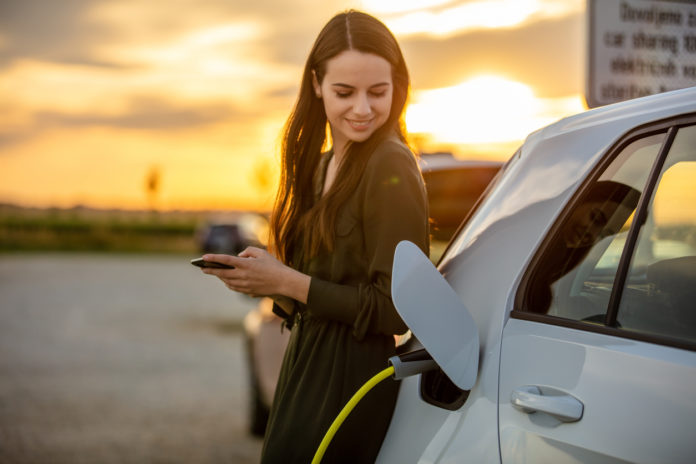Wellington’s use of electric vehicle (EV) chargers has tripled in the last six months, and almost 11,000 Wellingtonians are now members of car share schemes – but Council says that’s just the start of its efforts in reducing emissions around the city.
Combined, Mevo and Cityhop have 100 cars, some of which are hybrid or electric, and Council provides around 30 car parks for these vehicles with more planned, said Wellington Mayor Andy Foster.
“Electric car owners need confidence that there are places to recharge, and Council has supported the installation of 34 charging stations,” he said.
A 2020 survey of Wellington car share members suggests that every car share vehicle replaces up to 11 private vehicles.
“This is such a positive part of our collective response to reducing transport emissions which make up around 35% of our footprint. Decarbonising our transport fleet is a critical part of reducing overall emissions,” said Mayor Foster.
“In Wellington, electric vehicles and car share services combine with New Zealand’s highest level of walking, cycling and public transport use, made possible by our compact city urban form. Wellington’s recently released City Greenhouse Gas Inventory shows over the last 20 years an overall decrease of 7% in net emissions, even as our population has increased by 26% during that time,” he said.
“A reduction of 7% over two decades is a step in the right direction, especially considering the increases in GDP and population in the same timeframe. We continue to be committed to climate action to achieve the city’s targets, a goal supported by the 92% of Wellingtonians surveyed who prioritised climate change action.”
It’s been 18 months since Wellington City Council declared a climate and ecological emergency, putting protection of the environment and climate change action front and centre of its decision-making.
Council’s core business involves supporting low carbon transport, waste minimisation, native reforestation and protecting infrastructure from the threats caused by climate change.
Recent Council initiatives include:
- near completion of the cycling/walking path of the Great Harbour Way/Te Ara Tupua, from Oriental Bay to the Miramar cutting;
- installation of six fast and 28 slow EV chargers around Wellington;
- parking policy amendments to increase room for healthy streets;
- doubling the number of residential energy audits per year ;
- prioritising sustainability in our procurement strategy;
- consulting on a climate-friendly spatial plan;
- implementation of a residential food waste trial.
Climate Change Portfolio Lead, Councillor Tamatha Paul supports these initiatives and increased funding long term, but wants to see a faster rate of change in the future.
“While a reduction of 7% means we are heading in the right direction it’s nowhere near fast enough,” she said.
“Hopefully now the Climate Change Commission has put out their draft advice, action by Council, residents and Wellington-based businesses and organisations will accelerate.
“In the Long-term Plan we’re proposing an additional $27 million over ten years to fully fund our Te Atakura – First to Zero implementation plan to help the city achieve its net zero by 2050 goal. We also have significant funds earmarked for increasing our cycleway network, and building healthy streets and public transport options through Let’s Get Wellington Moving.”
Manager Climate Change Response, Alison Howard says the Climate Change Commission’s draft advice to central government reinforces local government’s important role in getting us to net zero.
“Much of their initial advice aligns with what we’re already doing or planning to do in terms of transport, buildings and waste management. We are preparing a submission to the Climate Change Commission that will reiterate the work we have to do to ensure our city is thriving in 2030 and beyond,” said Ms Howard.
“But we can’t do this on our own – we need the support of our entire community to become a net zero carbon city by 2050. Systematic transformation by both the public and private sectors coupled with individual behaviour changes are needed to achieve net zero emissions – one without the other will not get the necessary scale of change at the necessary pace.”



